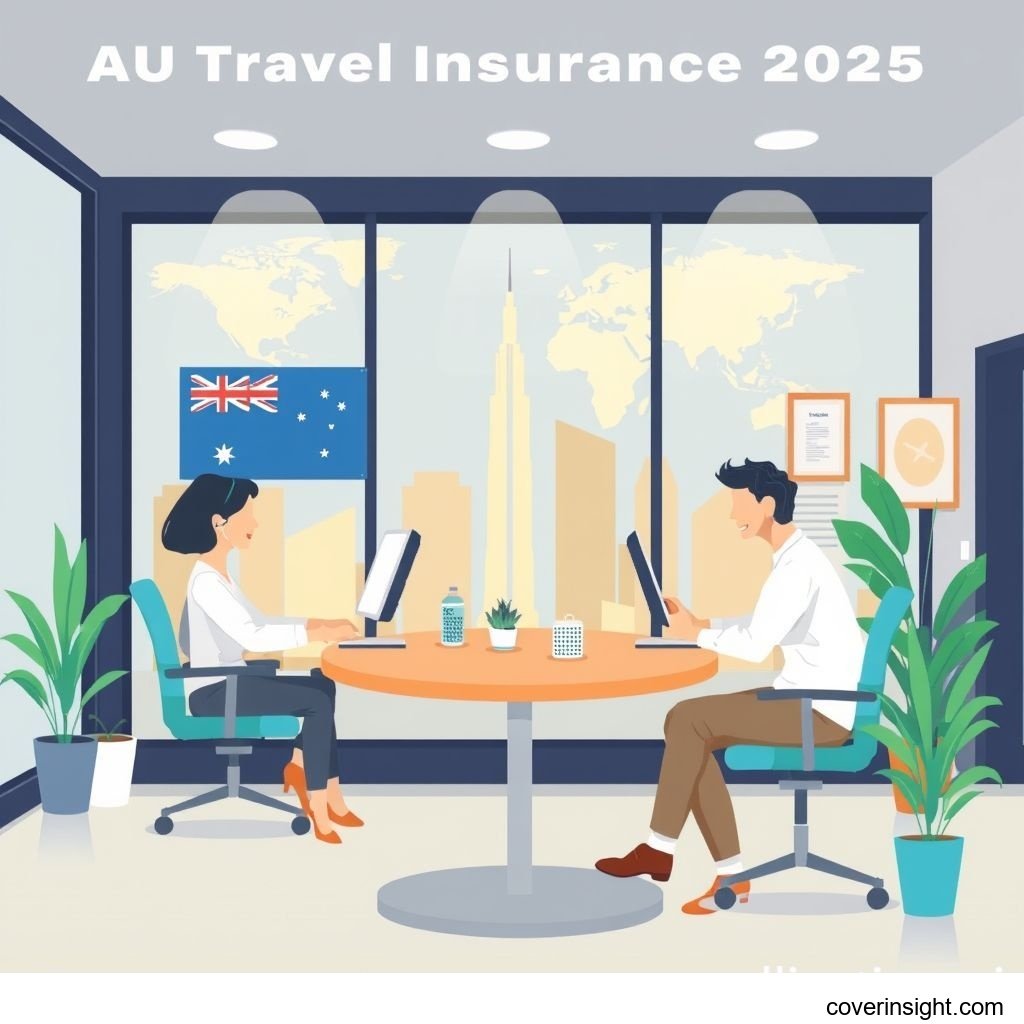Introduction
As Australians gear up for international adventures in 2025, understanding the landscape of travel insurance is more critical than ever. While many might be aware of Reciprocal Health Care Agreements (RHCAs) with certain countries, it’s vital to remember these are not a substitute for comprehensive travel insurance. RHCAs, such as those Australia holds with nations like the UK, New Zealand, Ireland, and Italy, provide access to some emergency or essential medical treatment for eligible Australians in those countries, and vice versa. However, their coverage is often limited, typically covering only immediate medical needs and usually not including ambulance services, dental care, or repatriation costs. This gap highlights the undeniable importance of robust travel insurance, ensuring you're not caught out financially should something go awry while you're away from home. For broader information on general insurance principles, you might find our Insurance Resources Global page helpful, and for specific Australian insights, check out AU Insurance Home.
Coverage Details
What’s Included
A solid travel insurance policy for Australians typically covers a wide range of potential mishaps. The core components usually include:
-
Medical Expenses: This is often the most significant part, covering hospital stays, doctor's fees, prescription medication, and even emergency dental treatment. Crucially, it should also cover emergency medical evacuation and repatriation back to Australia if necessary – a cost that can run into the hundreds of thousands of dollars.
-
Trip Cancellation and Interruption: If unforeseen circumstances (like a sudden illness, natural disaster, or death in the family) force you to cancel your trip or cut it short, this cover reimburses non-refundable expenses like flights and accommodation.
-
Lost, Stolen, or Damaged Luggage and Personal Belongings: Protection for your possessions, from your camera to your carry-on, should they go missing or get damaged.
-
Personal Liability: Covers you if you accidentally cause injury to another person or damage their property while overseas.
-
24/7 Emergency Assistance: Access to a helpline that can provide medical advice, help with language barriers, or assist with rebooking flights in an emergency. Many providers, from national players like Cover-More to regional ones like RACQ Travel Insurance, offer variations of these key benefits.
Common Exclusions
While policies offer peace of mind, it’s just as important to be aware of what they typically don't cover. Common exclusions include:
-
Pre-existing Medical Conditions: Unless explicitly declared and approved by the insurer, and often attracting an additional premium. Failure to declare could void your entire medical cover.
-
High-Risk Activities: Activities like bungee jumping, skydiving, or skiing are usually excluded unless you purchase specific adventure sports add-ons.
-
Alcohol or Drug-Related Incidents: Claims arising from intoxication or drug use are almost universally excluded.
-
Reckless Behaviour: If you act negligently or put yourself in unnecessary danger, your claim may be denied.
-
Pandemics and Epidemics: Following recent global events, many policies now have specific exclusions or limited coverage for events related to declared pandemics. Always check the Product Disclosure Statement (PDS) carefully for these clauses.
-
Change of Mind: Simply deciding you don't want to travel anymore won't be covered.
Cost Analysis
Price Factors
The cost of your AU travel insurance premium can vary wildly, influenced by several key factors:
-
Age: Generally, the older you are, the higher your premium, due to increased health risks.
-
Destination: Travel to countries with higher medical costs (like the USA) or those deemed higher risk often incurs higher premiums.
-
Duration of Trip: Longer trips naturally cost more to insure.
-
Type of Coverage: Comprehensive policies are more expensive than basic medical-only options.
-
Pre-existing Medical Conditions: As mentioned, declaring these can significantly increase the cost, but it's essential for valid cover.
-
Excess: A higher excess (the amount you pay upfront on a claim) typically results in a lower premium.
Saving Tips
Bagging a good deal on travel insurance doesn't mean skimping on cover. Here are a few clever ways to save:
-
Shop Around: Don't just go with your first quote. Use comparison websites or directly approach different insurers. Providers regulated by the Australian Prudential Regulation Authority are generally reliable.
-
Choose the Right Cover: Don't pay for what you don't need. If you're not planning adventurous activities, skip the adventure sports add-on.
-
Consider a Higher Excess: If you're comfortable paying a bit more out-of-pocket for smaller claims, a higher excess can reduce your upfront premium.
-
Annual Multi-Trip Policies: If you're a frequent flyer, an annual policy for multiple trips might be more cost-effective than buying single-trip policies each time.
-
Book Early: Sometimes, booking your insurance when you book your trip can unlock better rates, and it immediately covers cancellation risks.
FAQs
How much do reciprocal health care agreements cost? Reciprocal Health Care Agreements (RHCAs) are not insurance policies and do not have a direct cost to eligible individuals. They are arrangements between governments that allow citizens of one country to access essential or emergency medical treatment in the other country's public health system, similar to how local residents would. They are not a comprehensive alternative to travel insurance and won't cover things like medical evacuation, private hospital care, or lost luggage.
What affects premiums? Premiums are influenced by your age, the duration and destination of your trip, the type of coverage chosen (e.g., basic vs. comprehensive), any declared pre-existing medical conditions, and the excess amount you opt for.
Is it mandatory? No, travel insurance is not legally mandatory for Australians travelling overseas, unlike car insurance for drivers. However, it is highly recommended by the Australian government and reputable bodies like the Insurance Council of Australia because of the substantial financial risks involved in overseas medical emergencies or unforeseen events.
How to choose? To choose the right policy, start by assessing your specific needs: your destination, trip duration, planned activities, and any medical conditions. Then, compare multiple policies from different providers, carefully reading their Product Disclosure Statements (PDS) to understand what is and isn't covered. Pay attention to claim limits, excesses, and any specific exclusions. Online reviews and financial comparison sites can also be helpful.
Consequences of no coverage? Travelling without insurance is a massive gamble. The consequences can be financially ruinous. A single medical emergency overseas, such as a serious accident or sudden illness requiring hospitalisation and medical evacuation, can cost tens of thousands, even hundreds of thousands of dollars out of your own pocket. For instance, the Department of Foreign Affairs and Trade (DFAT) has reported that a medical evacuation from Europe to Australia can easily exceed $100,000, and from the USA, it could be upwards of $200,000. Without insurance, you'd be solely responsible for these staggering bills, plus costs for cancelled flights, lost luggage, or legal liabilities. It's simply not worth the risk. Take the case of 'Dave from Darwin' (a common story from the Smartraveller website) who broke his leg skiing in Canada without insurance. His hospital bills alone, before even considering the cost of flying home with medical assistance, blew his life savings faster than a hot chip on a frosty morning.
Author Insight & Experience
As someone who's spent a fair bit of time on the road, both within Australia and overseas, I've seen firsthand that while we Aussies often have a "she'll be right" attitude, when it comes to travel insurance, that just won't cut it. Based on my experience, the peace of mind that comes with knowing you're covered is priceless. It's not about planning for disaster, it's about being prepared, just in case. Don't be a galah – get your travel insurance sorted before you head off on your next adventure. It's like packing your swimmers for the beach; you hope you'll need them, but you'll be glad they're there if you do.








Comments